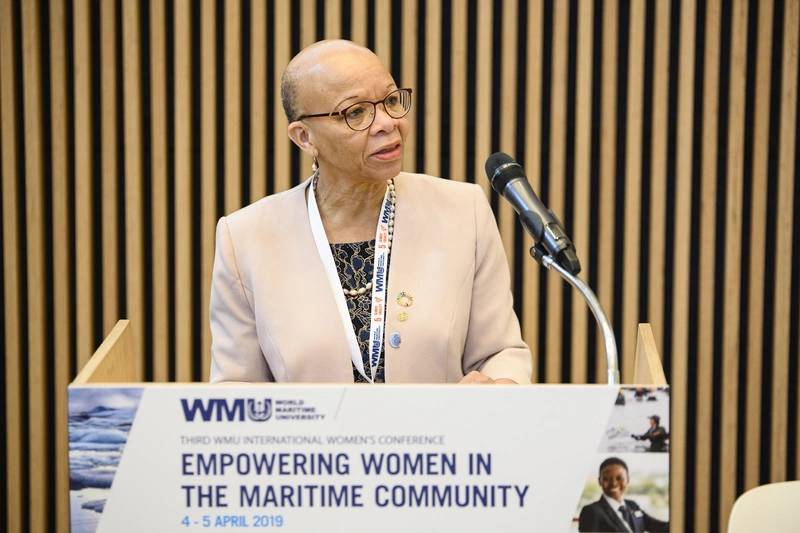According to the World Maritime University (WMU) during the second edition of the African Ports Forum which took place on November 9 and 10 at the Djibouti Palace Kempinski. WMU’s President, Dr Cleopatra Doumbia-Henry, delivered a keynote address via video message on the first day of the event highlighting the actions for the recovery of global ports to support the dynamics and development of the port and maritime sectors in French-speaking Africa.

In her remarks, Dr Doumbia-Henry spoke of the numerous challenges the maritime transport industry has faced due to the COVID-19 crisis, yet has continued to ensure the delivery of essential goods as well as trade while maintaining profitability. However, she highlighted that this has come at a price for seafarers. “To help the world overcome this threat, we need to ensure uninterrupted shipping. It is vital to keep supply chains open and to allow maritime trade to continue. This requires that the world’s ports remain open for ship calls and that crew changeover is allowed and facilitated. Seafarers are today, and will remain, indispensable to world trade,” she said.
In light of the pandemic, she noted the quick action of African ports and maritime facilities in constructing temporary physical structures and modifying terminals to cope with the need to increase storage capacity and safely store cargo, also providing dedicated space for emergency arrivals.
Recovery Plan according to UNCTAD
Regarding recovery plans for African ports, as well as ports around the world, Dr Doumbia-Henry emphasized the following key actions from the UNCTAD TrainForTrade Network 2020 to cope with the current pandemic:
1. Boost Internet capabilities and accessibility inside and outside port areas for port workers and users alike;
2. Increase connectivity and data interoperability in Global Supply Chains by implementing Port Community Systems and taking advantage of Digital Ledger Technology, the likes of Blockchain as promoted by the World Economic Forum;
3. Develop shorter and more diversified supply chains supported by advanced automation and labor-protective relocations in line with climate change objectives;
4. Reinforce regional port cooperation to build more resilient trade nodes to brace for future COVID-19 pandemic-like shocks;
5. Design new policies for resilient and inclusive ports to reach out to the most vulnerable people who are often dependent on the port communities’ economic and social fabric; and
6. Engage in innovative training approaches and well-being at all staff levels, leveraging on the technology.
The pandemic is changing the approach to safety within the maritime security regime. It has also put enormous pressure on the maritime sector with disruptions in the flow of goods, people and services. But on the positive side, Dr Doumbia-Henry noted the pandemic may provide a window of opportunity to advance a green agenda, specifically advancing the International Maritime Organization’s environmental policy agenda that supports achieving the United Nations Sustainable Development Goals.
Also participating in the conference on behalf of WMU, Assistant Professor, Dr. Fabio Ballini and Technical Officer, Dr. Khanssa Lagdami presented as part of the “Innovative Session” on the topic of Port Connectivity and Technological Innovations Towards Decarbonization of the Shipping Sector.
The Forum was organized in partnership with TangerMed S.A, Djibouti Ports and Free Zones Authority, SSATP and Proparco.

